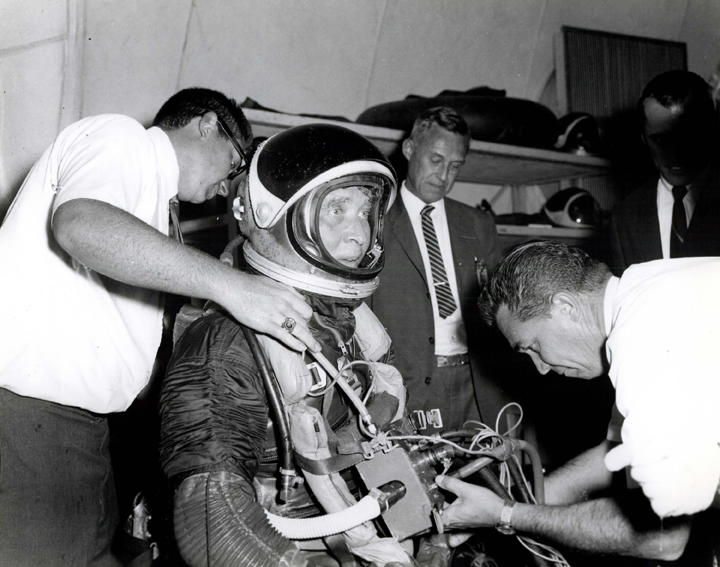Five Books did an excellent interview with geneticist Matthew Cobb on the topic of the “History of Science.” In discussing William E. Burrows’ really fun 1999 title, This New Ocean: The Story of the First Space Age, Cobb comments on Wernher von Braun an erstwhile Nazi and American hero who directly oversaw the murders of Jewish prisoners and who wanted to gas monkey astronauts in outer space (I swear!). An excerpt:
Question:
You just mentioned Enceladus so, talking of space missions, we’ll go on to your next book: William Burrows’s This New Ocean: The Story of the First Space Age published in 1998. What do you like about this book?
Matthew Cobb:
Space! Rockets! When it came out I was about to go on holiday and wanted a thick book to read. Burrows is a science journalist: not a historian or a scientist. I find it incredibly readable, very exciting. Although it was written by an American, it didn’t cover up the fact that Wernher von Braun, the brains behind the Apollo programme, was a Nazi Party member who was absolved for his involvement with the Hitler regime because he could build ICBMs. The book contains a good account—as good as there could be at the time, given the archives in the USSR hadn’t fully opened—of the huge advances the Russians made, which became obvious as they first flew up the Sputnik and then put the first man in space. I find it an extremely readable account of a time I grew up in—almost like a novel. I wasn’t reading it with a professional eye because I don’t know much about space history.
Question:
Burrows’s book is very dramatic—especially some of the moments like the first moon landing.
Matthew Cobb:
I remember it! I was 11 years old at the time. I was watching it with my uncle Brian in the middle of the night. Although I remember the excitement of seeing Neil Armstrong’s feet stepping down on to the ground, I was equally amazed by the fact that Brian was eating four Weetabix at three o’clock in the morning. We have lost a lot of the excitement about space flight. A year ago NASA trialled the Orion space capsule, which they may use to fly to Mars. The launch was in the middle of one of my lectures, so I decided to take a brief break and show the students the NASA live stream. You don’t see rocket launches on live TV anymore. The space shuttle has been scrapped and although there are rockets going to the Space Station, and private companies like SpaceX and Blue Origin developing reusable rockets, they doesn’t enjoy the same media attention as in the 60s and 70s. So we all sat and watched it—the students were very excited.•

